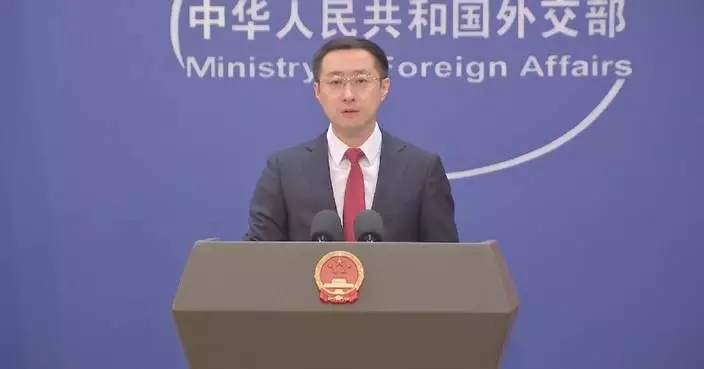Hong Kong's latest foreign currency reserve assets figures released
The following is issued on behalf of the Hong Kong Monetary Authority:
The Hong Kong Monetary Authority (HKMA) announced today (April 7) that the official foreign currency reserve assets of Hong Kong amounted to US$413.1 billion as at the end of March 2025 (end-February 2025: US$416.4 billion) (Annex).
Including unsettled foreign exchange contracts, the foreign currency reserve assets of Hong Kong at the end of March 2025 amounted to US$412.5 billion (end-February 2025: US$415.9 billion).
The total foreign currency reserve assets of US$413.1 billion represent over five times the currency in circulation or about 37 per cent of HongKong dollar M3.
****************************************************************
At present, four press releases relating to the Exchange Fund's data are issued by the HKMA each month. Three of these releases are issued to disseminate monetary data in accordance with International Monetary Fund's Special Data Dissemination Standard (SDDS). The fourth press release, on the Exchange Fund's Abridged Balance Sheet and Currency Board Account, is made in accordance with the HKMA's policy of maintaining a high level of transparency. For the month of April 2025, the scheduled dates for issuing the press releases are as follows:
April 7
SDDS International Reserves
(Hong Kong's Latest Foreign Currency Reserve Assets Figures)
April 14
SDDS Analytical Accounts of the Central Bank
(Analytical Accounts of the Exchange Fund)
April 30
SDDS Template on International Reserves and
Foreign Currency Liquidity
April 30
Exchange Fund Abridged Balance Sheet and
Currency Board Account
Update on dengue fever
The Centre for Health Protection (CHP) of the Department of Health today (April 11) reported the latest number of dengue fever (DF) cases, and urged the public to maintain strict environmental hygiene, mosquito control and personal protective measures both locally and during travel.
From April 3 to yesterday (April 10), the CHP recorded one imported DF case. The patient had travelled to Sri Lanka during the incubation period.
As of yesterday, 10 imported DF cases have been recorded so far this year. A total of 161 cases of DF were recorded in 2024, including 156 imported and five local cases. In 2023, 62 imported cases of DF were recorded.
Meanwhile, Guangdong Province recorded the first local case of 2025 in Foshan between March 24 and 30, according to the Guangdong Provincial Center for Disease Control and Prevention.
According to the World Health Organization (WHO), the global incidence of DF has markedly increased over the past two decades, posing a substantial public health challenge. In 2023, ongoing transmissions, combined with an unexpected spike in DF cases, resulted in over 6.5 million cases and more than 7 300 dengue-related deaths reported in over 80 countries/territories. In 2024, the WHO recorded over 14 million cases, which was a record number of cases.
Detailed information on the latest DF situation in Hong Kong, as well as neighbouring and overseas countries and areas, has been uploaded to the CHPwebsite.
Members of the public returning from areas affected by DF should apply insect repellent for 14 days upon arrival in Hong Kong. If feeling unwell, seek medical advice promptly and provide travel details to a doctor.
The public should take heed of the following advice on mosquito control:
Thoroughly check all gully traps, roof gutters, surface channels and drains to prevent blockage;
Scrub and clean drains and surface channels with an alkaline detergent compound at least once a week to remove any deposited mosquito eggs;
Properly dispose of refuse, such as soft drink cans, empty bottles and boxes, in covered litter containers;
Completely change the water of flowers and plants at least once a week. The use of saucers should be avoided if possible;
Level irregular ground surfaces before the rainy season;
Avoid staying in shrubby areas; and
Take personal protective measures such as wearing light-coloured long-sleeved clothes and trousers, and apply insect repellent containing DEET to clothing or uncovered areas of the body when doing outdoor activities.
DEET-containing insect repellents are effective and the public should take heed of the tips below:
Read the label instructions carefully first;
Apply right before entering an area with risk of mosquito bites;
Apply on exposed skin and clothing;
Use DEET of up to 30 per cent for pregnant women and up to 10 per cent for children*;
Apply sunscreen first, then insect repellent; and
Reapply only when needed and follow the instructions.
* For children who travel to countries or areas where mosquito-borne diseases are endemic or epidemic and where exposure is likely, those aged 2 months or above can use DEET-containing insect repellents with a DEET concentration of up to 30 per cent.
The public should call 1823 in case of mosquito problems and may visit the following pages for more information: the DF page of theCHPand theTravel Health Service, the latestTravel Health News,tips for using insect repellents, and the CHPFacebook PageandYouTube Channel.



















































